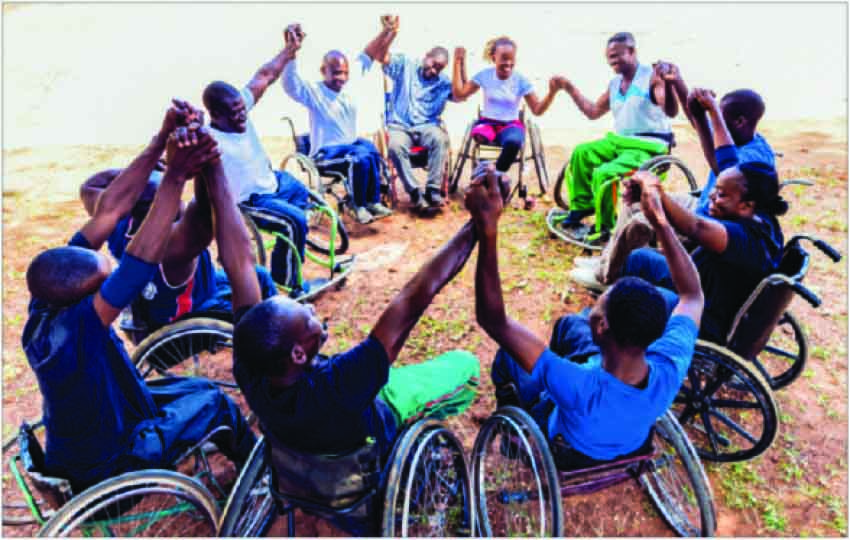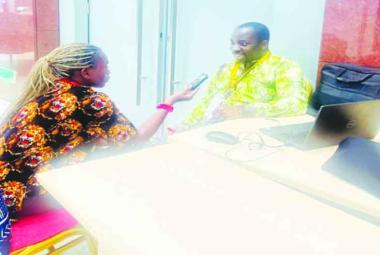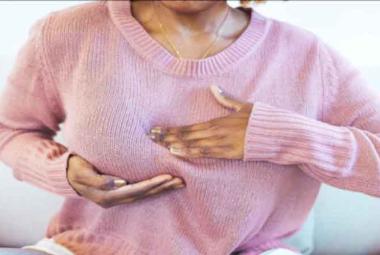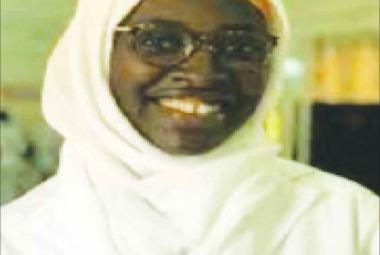By Awa Sowe
Disability is part of being human and is integral to the human experience. It results from the interaction between health conditions such as dementia, blindness or spinal cord injury, and a range of environmental and personal factors. An estimated 1.3 billion people – or 16% of the global population – experience a significant disability today.
This number is growing because of an increase in non-communicable diseases and people living longer. Persons with disabilities are a diverse group, and factors such as sex, age, gender identity, sexual orientation, religion, race, ethnicity and their economic situation affect their experiences in life and their health needs. Persons with disabilities die earlier, have poorer health, and experience more limitations in everyday functioning than others.
According to the National Disability Institute (NDI) only half of persons with disabilities are employed compared to 3 in 4 persons without disabilities.28.4% of persons with disabilities are at risk of poverty or social exclusion compared to 17.8% of persons without disabilities. Only 29.4% of persons with disabilities attain a tertiary degree compared to 43.8% of those without disabilities.52% of persons with disabilities feel discriminated against.
The UN Convention on the Rights of Persons with Disabilities defines persons with disabilities as ‘those who have long-term physical, mental, intellectual or sensory impairments which in interaction with various barriers may hinder their full and effective participation in society on an equal basis with others’.
As the world commemorates Persons with Disabilities Day, we engage Mr Yankuba Faal Sonko, the founder of the Organisation for Social Development and Inclusion for Visually Impaired (OSDIVI), to share his views about the plight of persons living with disabilities and way forward.
He called on Government to consider the living conditions of visually impaired persons, and expressed frustrations over the difficulty of having audience with authorities
“It is time we wake up and know our worth as persons with disabilities,” Sonko said asking them not to allow any politician to use them to get the votes and then neglect their welfare.
He pointed out that disability is a situation that anyone can fall into, adding that he was not born as a visually impaired person.
Mr Sonko further explained that a disproportionate number of persons with disabilities live in developing countries, often marginalized and in extreme poverty, and that during humanitarian emergencies, persons with disabilities are recurrently left behind, with little or no say in the rebuilding of their lives and communities.
“The protection guaranteed in other human rights treaties, and grounded in the Universal Declaration of Human Rights, should apply to all. Persons with disabilities have, however, remained largely ‘invisible’”. He irritated that PWD often excluded in the rights debate and denied from enjoying and exercising the full range of human rights.
The Convention on the Rights of Persons with Disabilities, which was adopted in 2006 and entered into force in 2008, signaled a ‘paradigm shift’ from traditional charity-oriented, medical-based approaches to disability to one based on human rights. It calls for the inclusion and participation of persons with disabilities across the human rights, development and humanitarian agendas and highlights the rights and empowerment of women with disabilities and children with disabilities as groups which face multiple and intersecting forms of discrimination.
Persons with disabilities must be considered when preventing and responding to health emergencies because they are more likely to be affected, both directly and indirectly. For example, during the COVID-19 pandemic, persons with disabilities living in institutions have been “cut off from the rest of society” with reports of residents being overmedicated, sedated, or locked up, and examples of self-harm also occurring.
Mr Omar Ceesay, the President of Gambia Transport Union said Visually Impaired Persons are part of the society and they should not be isolated.
He stated that in 2022 alone the Gambia recorded 1,002 road accidents out of which 113 people died and 391 sustained serious injuries. He added that some of them have become persons with disabilities and that over 300 are undergoing treatment.
Disability inclusion is critical to achieving the Sustainable Development Goals and global health priorities to achieve health for all. He mentioned that Universal Health Coverage will not be achieved if persons with disabilities do not receive quality health services on equal basis with others. Investing in universal health coverage for persons with disabilities will benefit not only individuals but also communities.
Countries have an obligation under international human rights law, and in some cases domestic laws, to address the health inequities faced by persons with disabilities. There are two important international frameworks which relate to health equity for persons with disabilities.
The Convention on the Rights of Persons with Disabilities requires States Parties to ensure that persons with disabilities have access to the same range, quality and standard of free or affordable health care as other people.
The World Health Assembly Resolution WHA74.8 on the highest attainable standard of health for persons with disabilities calls for Member States to ensure that persons with disabilities receive effective health services as part of universal health coverage; equal protection during emergencies; and equal access to cross-sectoral public health interventions.
Buba Singhateh, a 53-year-old father of four children. He’s independent, has a house, raised a family and his adult kids still look to him for support. Buba recently retired as a computer programmer in 2022, he had a disability for over 35 years as he was hit by a drunk driver. The accident left him as a partial paraplegic.
Buba’s life is not defined by his disability. He lives life just like anyone else without a disability would live their life. “There is a lot I can do, and there are some things that I cannot do. I drive, I invest money. I’m not rich, but I’m not poor. I enjoy being healthy, and being independent,” said Buba.
As a person with disability, however, Buba has experienced many barriers. He has seen many of the barriers and attitudes towards people with disabilities persist.
“I don’t expect the world to revolve around us. I will adapt – just make it so I can adapt. “He concluded
Disability is not inability, Persons with disabilities face discrimination and barriers every day that restrict them from participating in society on an equal basis with others. For example, they are commonly denied their rights to be included in school and the workplace, to live independently in the community, to vote, to participate in sport and cultural activities, to enjoy social protection, to access justice, to consent or refuse medical treatment or to enter freely into legal commitments such as opening a bank account, and inheriting or buying property.






